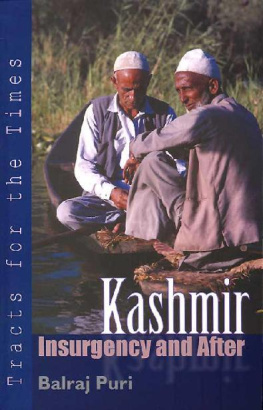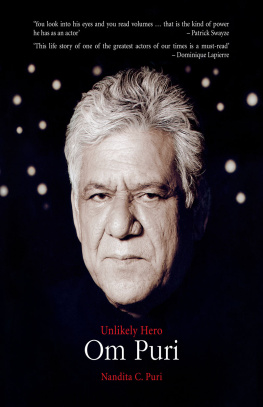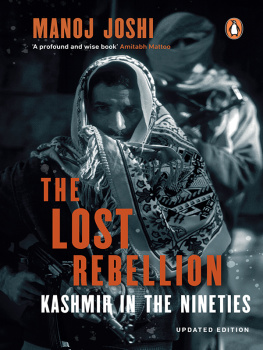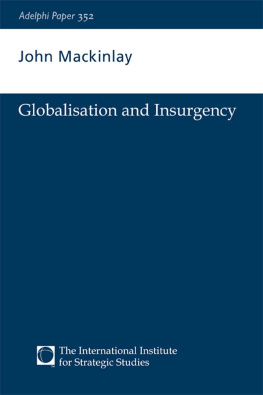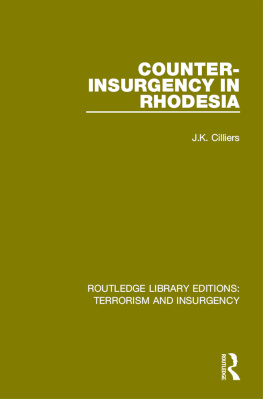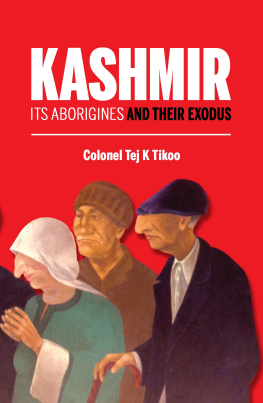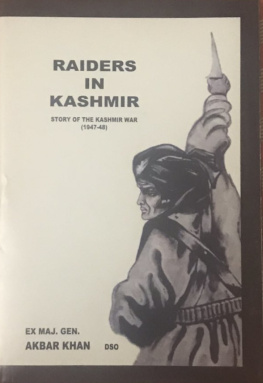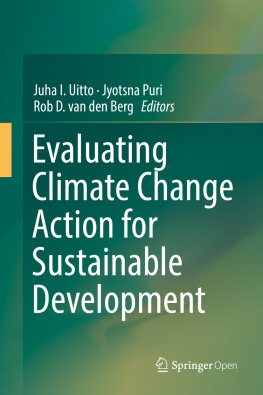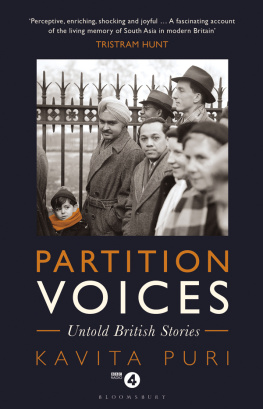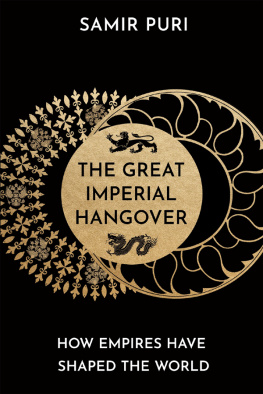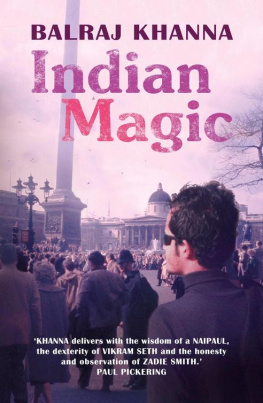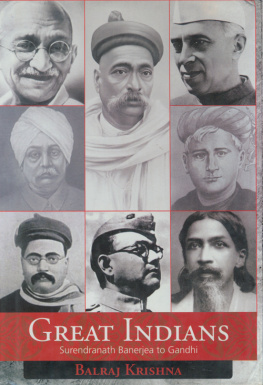KASHMIR: INSURGENCY AND AFTER
Balraj Puri is a Jammu-based journalist, columnist and social activist. He started his public career as the editor of a weekly paper in 1942 and has been active in the political and social life of the country, with Jammu and Kashmir as his main area of interest. He has studied the aspirations of all ethnic identities of the state on both sides of the LoC and acted as a bridge between them. He has been a champion of a federal system in the state with autonomy to each region. He has attended seminars and addressed academic gatherings in countries like the U.S.A., U.K., Canada, Europe, Pakistan, Bangladesh, Sri Lanka. He is the recipient of many national awards, including the Padma Bhushan in 2005. He is the author and co-author of almost forty books, including Communism in Kashmir (1962), Jammu: A Clue to the Kashmir Tangle (1966), Jammu and Kashmir: Triumph and Tragedy of Indian Federalization (1981), Abdullah Era (1982), Simmering Volcano: Jammus Relations with Kashmir(1983), Impact of Armed Conflict on Children of JK(2002) and Muslims in India since Partition (2007) .
KASHMIR
Insurgency and After
BALRAJ PURI
For our entire range of books please use search strings " Orient BlackSwan ", " Universities Press India " and " Permanent Black " in store.
Orient Blackswan Private Limited
Registered Office
3-6-752 Himayatnagar, Hyderabad 500 029 (A.P.), INDIA
e-mail:
Other Offices
Bangalore, Bhopal, Bhubaneshwar, Chennai,
Ernakulam, Guwahati, Hyderabad, Jaipur, Kolkata,
Lucknow, Mumbai, New Delhi, Noida, Patna
Orient Longman Private Limited 1993, 1995, 2008
First published 1993
Second edition 1995
Third edition 2008
eISBN 978 81 250 5317 0
e-edition:First Published 2013
ePUB Conversion: .
All rights reserved. No part of this publication may be reproduced, distributed, or transmitted in any form or by any means, including photocopying, recording, or other electronic or mechanical methods, without the prior written permission of the publisher, except in the case of brief quotations embodied in critical reviews and certain other noncommercial uses permitted by copyright law. For permission requests write to the publisher.
Contents
Editorial Preface to the First Edition
TRACTS FOR THE TIMES will attempt to provide meaningful information, critical perspectives, and theoretical reflections on various themes of contemporary concern. The tracts will seek to deepen our knowledge of crucial issues, query our common sense, re-think old concepts, and analyse the social and economic problems we confront.
The argument of this tract on Kashmir is developed around two central themesautonomy and democracy. It argues passionately for the need to recognise the legitimacy of regional identities. The bonds between a region and the nation can be built on stronger grounds within a political culture which is sensitive to the democratic aspirations of people of different regions. In the early years after independence, the nationalist leadership was committed to a certain notion of autonomy of the state and of regional autonomy within the state within the framework of the nation state. In subsequent decades this idea was gradually thrown overboard. This led to a growing feeling of alienation and anger in Kashmir. When national and regional interests were presented as incompatible, the nation itself appeared opposed to the region. The reluctance of the Centre to concede any autonomy to Kashmir was matched by the refusal of the Kashmir leadership to allow Jammu any right to autonomy within the state. This created a tension between the different regions within the state and eroded the basis of a composite identity of the Jammu and Kashmir state.
The question of autonomy is linked to the issue of democracy. Puri shows that democratic institutions were never allowed to acquire roots in Kashmir. National leaders from Nehru to Jayaprakash Narayan agreed to one party rule in Kashmir. Democratically elected leaders of the region were removed through central intervention, and democratic movements were repressed. It seemed as if in the case of the state of Jammu and Kashmir, democracy and nationalism were incompatible, as if the imperative of national integration allowed no possibility of any experiment in democracy. Democracy in Kashmir was projected as an impossible option, and demands for democracy were censored as anti-national. This denial of democratic rights deepened the alienation of the Kashmiri people. Terrorist and secessionist forces played on this sense of alienation.
Puri traces the story from 1947 when the princely state of Jammu and Kashmir acceded to India. The Maharaja of the State agreed to the accession after considerable vacillation. Supported by the All Jammu and Kashmir Rajya Hindu Sabha, he was initially in favour of a Hindu state independent of secular India, and then toyed with the idea of accession to Pakistan. Once the accession with India was formalised, the Government of India wanted it approved through a referendum. At this time the Congress was committed to the idea of plebiscite and confident of winning it. By 1953 this confidence had evaporated. Sheikh Abdullah was placed under indefinite detention and the question of plebiscite became a matter of prolonged debate. Puri unravels the complex process through which the emotional ties between Kashmir and the rest of India were subsequently ruptured, the basis of secular and democratic politics in Kashmir was weakened, the legitimacy of the Indian state was destroyed, and terrorism gained ground. The tract ends with reflections on the logic of terrorism, secessionism and communalism in Kashmir.
The implication of Puri's analysis are clear. Continued state repression will only widen the popular support of militant groups. Unless democratic processes are reintroduced and democratic groups have a space to operate, terrorism cannot be marginalised and contained. Unless the ties between the Kashmiri people and the rest of India are re-established, the region cannot be emotionally integrated to the nation. This cannot be done through a policy of pragmatic concessions. Nor through state initiative alone. The Kashmir problem is intimately linked to the way the entire nation sees the region, its politics, its diversities and its people. There is a need to understand the democratic aspirations of the people and open our minds to the possibility of regional autonomy within a federated structure.
N EELADRI B HATTACHARYA (1993)
Introduction
This tract is an attempt at understanding the insurgency that began in the Kashmir valleyone of the three regions within the state of Jammu and Kashmir (J&K)and gradually extended to the Jammu region in the next four or five years. This insurgency had simmered for a few years before it exploded fully in the beginning of 1990. Its causes are immediate as well as long term, and must take into account some unique features of the Kashmiri personality. The developments in the other two regions of the state, namely Jammu and Ladakh, also have a vital bearing on the Kashmir problem.
At the time of partition in 1947, the Hindu maharaja of the state was, for his own reasons, reluctant to accede to the Indian Union and the Hindus, accounting for a little over 20 per cent of the population of the state, were divided in their loyalty to the maharaja and to India. It was the Muslim leadership of the Kashmir region that favoured accession to India.
Why did the Kashmiri Muslims and their leaders defy the then prevailing pro-Pakistan wave among the Muslims in the rest of the subcontinent that had almost been polarised on communal lines? Why did disillusionment set in by 1953 when Indian secularism had registered a decisive triumph over communal forces? Why was Sheikh Abdullah, the hero of Kashmiri nationalism and chief architect of the state's accession to India, then dismissed from power and imprisoned? Why did he again sign an accord with India's Prime Minister Indira Gandhi, thus reconciling to Kashmir being a part of India, and return to power in 1975, without losing much of his popular support? Why were secessionist and fundamentalist voices almost silent for the next twelve years or so? What brought about the near-total alienation of Kashmiri Muslims by 1990? Why did Kashmiri Hindus migrate practically en masse from the valley that was till then considered a model of communal harmony for the whole country? Why did non-Kashmiri Muslims, who had been the least enthusiastic about accession to India in 1947, remain, by and large, uninvolved in the ongoing secessionist insurgency in the Kashmir valley? How did thousands of youth of a community, always ridiculed for its 'docile' and 'cowardly' nature, take to arms and offer resistance to the might of the Indian state with a determination that has few parallels in the country? And how do we account for the fact that in spite of the militants' total dependence on Pakistan for the supply of arms and training as also officially acknowledged 'moral, political and diplomatic' support, the predominant battle cry in Kashmir was azadi (freedom) and not a merger with Pakistan? Why did the decline of militancy start after the turn of the century? What are the prospects of an agreement between India and Pakistan on the status of J&K And would that finally solve the Kashmir problem?


